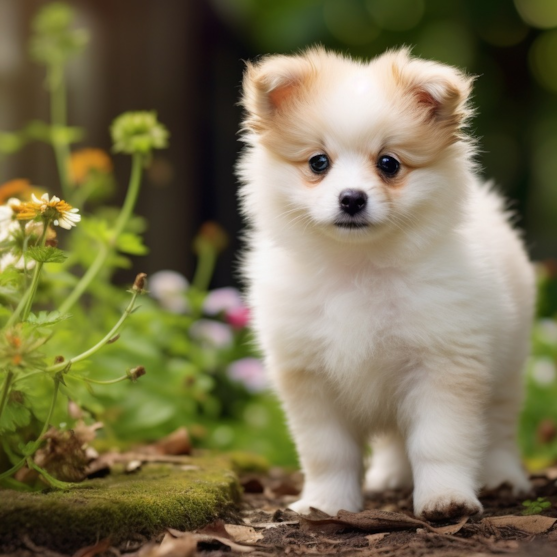Pomachon Breed Information


The Pomachon, also known as the Pom Frise, is an adorable and charming crossbreed that combines the best traits of the Pomeranian and the Bichon Frise. This lovable little designer dog has captured the hearts of many with its fluffy coat, affectionate nature, and lively personality.
As a small-sized breed, the Pomachon is perfect for families, singles, and seniors alike, and they can thrive in various living situations, from apartments to houses with yards.
The Pomachon is an excellent choice for those who want a low-shedding, intelligent, and friendly companion. They are known for their cheerful disposition, adaptability, and love for human interaction.
The Pomachon is a highly social dog that forms strong bonds with its family members, making it a truly endearing addition to any home. Their ability to get along well with children and other pets makes them a popular choice for families looking to add a furry friend to their household.
One of the standout features of the Pomachon is its semi-hypoallergenic coat, which is a blessing for those who suffer from mild pet allergies. Not only do they have a lower tendency to shed, but their soft, curly fur is also irresistibly cuddly, making them the perfect snuggle buddy.
Pomachons are known for their intelligence and eagerness to learn, which makes training a breeze. They enjoy participating in various activities, from leisurely walks to more challenging agility courses, showcasing their versatility and adaptability.
Characteristics
- The Pomachon's low-shedding and semi-hypoallergenic coat make them a suitable option for people with mild pet allergies
- Pomachons are small-sized designer dogs, typically weighing between 5-10 pounds and standing 9-11 inches tall at the shoulder
- They have a soft, curly, and fluffy coat that comes in various colors, including white, black, tan, orange, or red
- Pomachons are known for their loving and affectionate nature, forming strong bonds with their family members
- They are highly intelligent dogs that are eager to learn and pick up new commands quickly
- Pomachons can adapt well to various living situations, from apartments to homes with yards
- They are friendly and sociable dogs that generally get along well with children, other pets, and even strangers
- Pomachons have moderate exercise needs, requiring regular walks and play sessions to stay happy and healthy

Appearance
The Pomachon is a small and lovable dog that boasts an irresistible appearance. Their adult weight typically ranges from 5 to 10 pounds, and their height at the shoulder measures between 9 and 11 inches. This compact size makes them an excellent choice for apartment living and those seeking a smaller canine companion.
One of the most charming aspects of the Pomachon's appearance is their fluffy, curly coat. This soft, plush fur comes in a variety of colors, including white, black, tan, orange, or red. The semi-hypoallergenic and low-shedding nature of their coat is a bonus for pet owners who may have mild allergies.
The Pomachon's face often features an adorable, expressive look, with dark, round eyes and a button-like nose. Their ears can be either floppy like the Bichon Frise or more erect like the Pomeranian, depending on which parent breed they take after.
Their body is compact and sturdy, with a slightly rounded chest and well-proportioned limbs. The Pomachon's tail may be carried high and curled over its back or hang down, depending on the individual dog.
Temperament
The Pomachon is a loving and affectionate breed that is known for its friendly and outgoing nature. They love nothing more than spending time with their family, whether it's cuddling on the couch or joining in on a playtime session.
Pomachons are highly adaptable dogs and can do well in various living situations, from small apartments to larger homes. They are generally good with children and other pets, making them an ideal choice for families.
One of the standout features of the Pomachons' temperament is their intelligence and trainability. They are eager to learn and pick up new commands quickly, making training a breeze. Their affectionate nature makes them highly responsive to positive reinforcement training techniques, such as treats, praise, and affection.
Another defining trait of the Pomachons' temperament is their tendency to form strong bonds with their owners. They thrive on attention and enjoy being around their human companions, often following them from room to room to stay close.
Care
Grooming
The Pomachons curly and fluffy coat is one of their most endearing features, but it also requires regular grooming to keep it looking its best. Their semi-hypoallergenic coat means they shed less, but it still needs to be brushed at least two to three times per week to prevent matting and tangling.
Regular trimming every six to eight weeks is also necessary to keep their coat in shape and prevent it from becoming too long or unruly. Many Pomachon owners opt for professional grooming services to keep their dog's coats looking neat and tidy.
In addition to coat care, Pomachons require regular dental care to maintain good oral hygiene. Daily brushing of their teeth is recommended to prevent tartar build-up and gum disease.
Pomachons are also prone to ear infections due to their floppy ears, which can trap moisture and wax. Owners should regularly check and clean their dog's ears to prevent any infections from developing.
Exercise Needs
While Pomachons have moderate exercise needs, it is important to ensure they get enough physical activity to maintain their health and happiness. Daily walks and play sessions are recommended, with at least 30 minutes of exercise per day.
Pomachons enjoy playing and interacting with their owners, making activities like fetch, tug-of-war, and hide-and-seek excellent options for exercise and bonding. They also enjoy learning new tricks and participating in obedience training, which provides both mental and physical stimulation.
It's important to note that while Pomachons can adapt to different living situations, they may not be suitable for households with young children who may play too roughly or accidentally harm the small dog.
Proper socialization and training can help prevent any potential behavioral issues, but it's essential to supervise children and teach them how to interact with the dog safely.
Health
The Pomachon is a generally healthy breed with a long lifespan. However, as with all breeds, they may be susceptible to certain health issues. It is essential to work with a reputable breeder who screens their dogs for potential health issues and to schedule regular vet check-ups to monitor your dog's health.
Some potential health issues that Pomachons may be prone to include dental problems, ear infections, and allergies. However, with proper care and attention, many of these issues can be managed or prevented altogether.
Lifespan
The Pomachon has a relatively long lifespan for a small breed, with an average lifespan of 12-15 years. However, proper care and attention are crucial in ensuring your Pomachon lives a long and healthy life.
In addition to proper care, providing your Pomachon with plenty of love, attention, and mental stimulation can also contribute to their long and happy life.
Pomachons thrive on social interaction and enjoy spending time with their human family members, making them an excellent choice for anyone seeking a loyal and affectionate companion.
Training
The Pomachon is a breed that enjoys learning new things and is eager to please its owners. They respond well to positive reinforcement training techniques such as treats, praise, and affection.
Early training and socialization are essential for Pomachons, as they can be prone to separation anxiety if not properly trained. Introduce your Pomachon to various people, places, and situations to help them feel more comfortable in different environments. This will help prevent any potential behavioral issues such as barking, chewing, or destructive behavior.
Basic obedience training is important for all dogs, and Pomachons are no exception. Start with simple commands such as sit, stay, and come and gradually build up to more complex commands. Consistency is key, and it's essential to reinforce good behavior consistently to help your Pomachon understand what is expected of them.
In addition to obedience training, Pomachons enjoy learning new tricks and participating in fun activities like agility and nose work. These activities provide mental stimulation and can help prevent boredom and destructive behavior.
It's important to remember that training is an ongoing process, and Pomachons require regular training and reinforcement throughout their lives. Positive reinforcement techniques are the most effective and humane way to train your Pomachon, and they respond best to a patient and consistent approach.
History
The Pomachon is a relatively new breed that originated in the late 20th century, created by crossing a Pomeranian with a Bichon Frise. The aim of this crossbreeding was to combine the best traits of both parent breeds, resulting in a small, intelligent, and friendly dog with a low-shedding, semi-hypoallergenic coat.
As a designer breed, the Pomachons' popularity has grown steadily over the years, thanks to their delightful appearance and endearing personality. They have become a favorite among families, seniors, and singles alike, looking for a charming and adaptable companion.
Although the Pomachons' history is relatively short compared to other established breeds, they have made a significant impact on the hearts of dog lovers worldwide. With their unique combination of qualities from both the Pomeranian and Bichon Frise, the Pomachon has earned a special place in the world of designer dog breeds.





